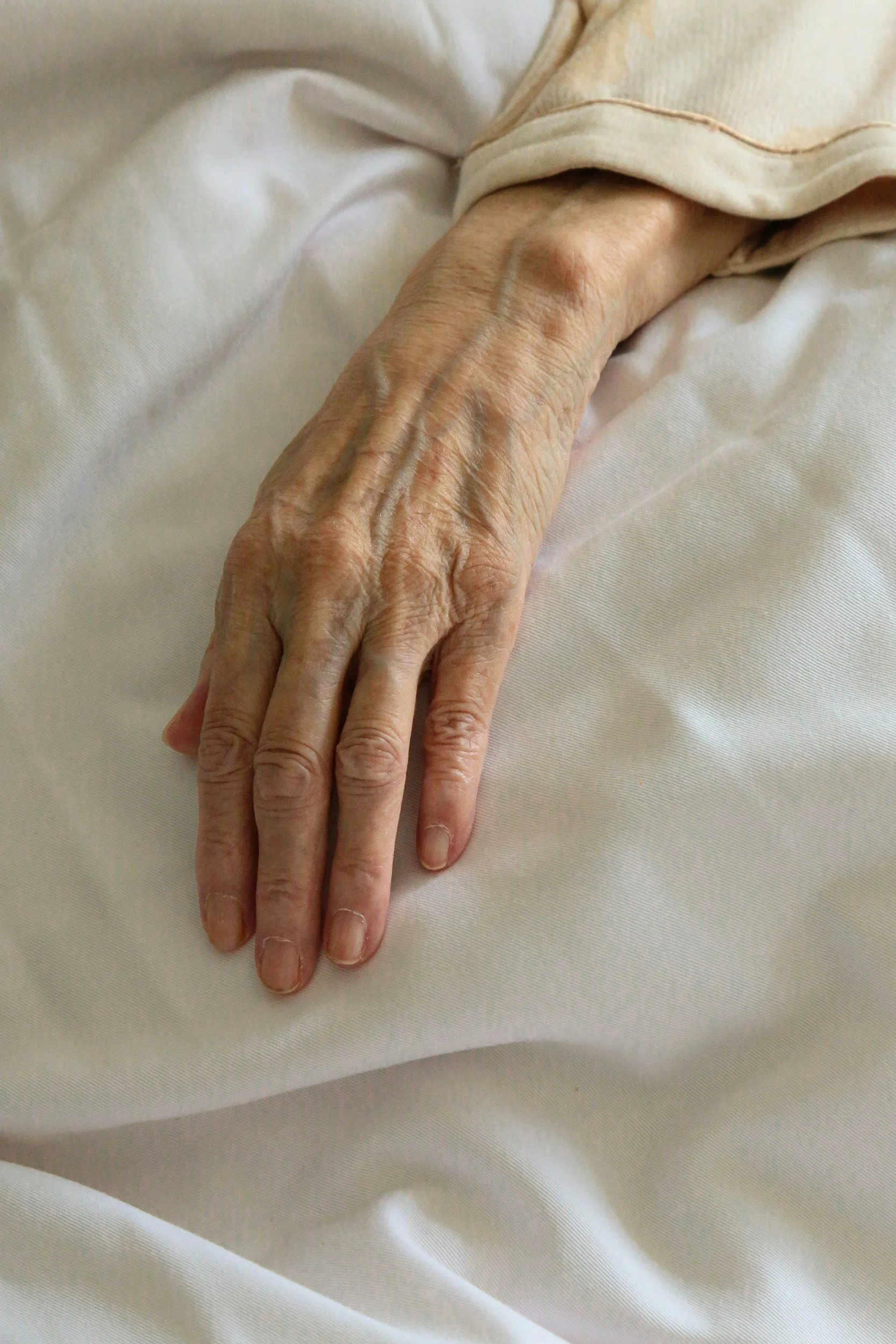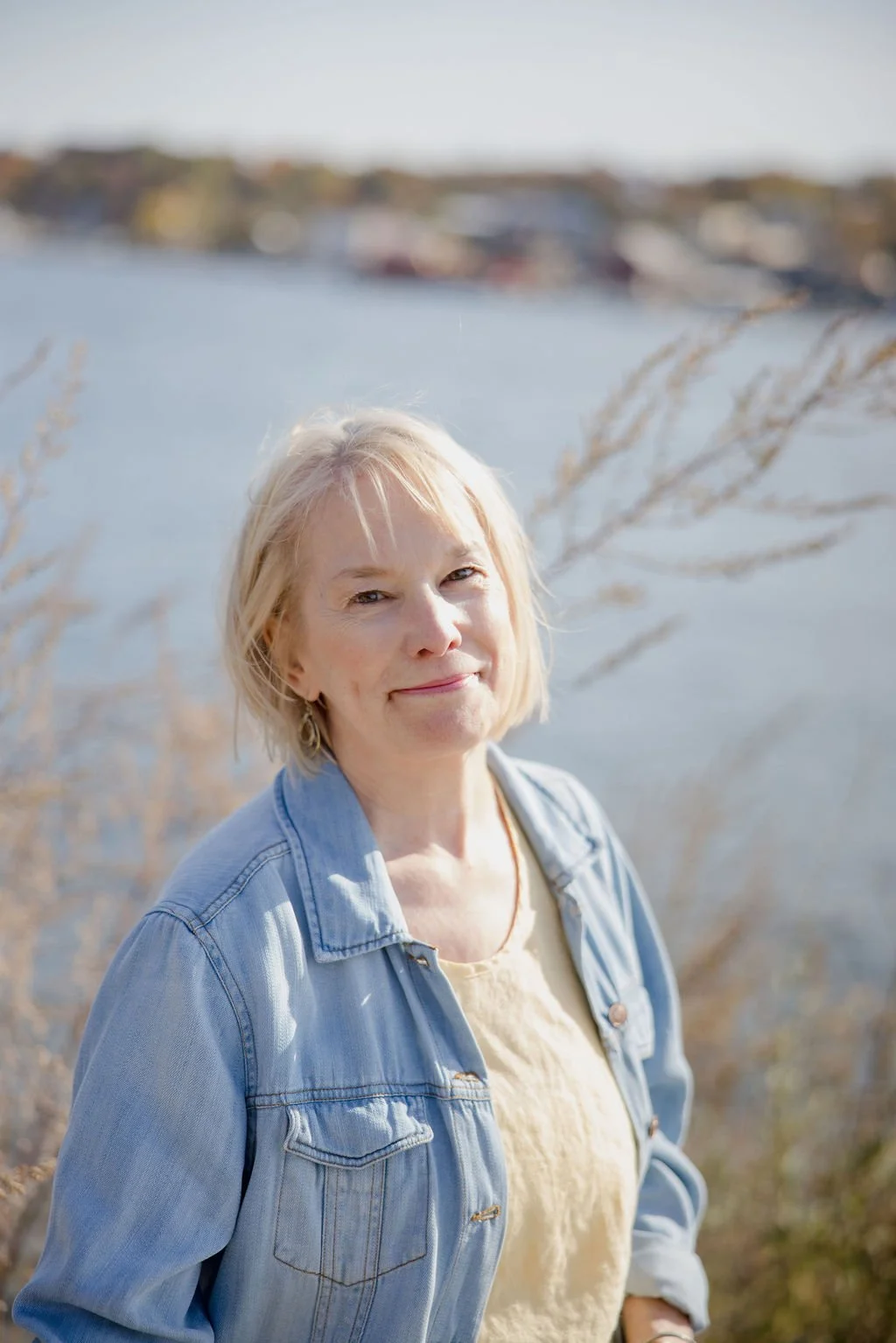Solo Voyage
I
Dirty Fingernails
I was in the kitchen cleaning up after dinner when I heard the glass shatter. I simultaneously took a deep breath, closed my eyes, and waited for the inevitable outburst.
“Goddammit all to hell. Shit. I can’t do anything without screwing up. I am a fucking failure. A total loser.”
Jon, while sitting in his reading chair, had suffered an essential tremor in his right hand—the hand that, seconds earlier, had been holding a glass of Pinot Noir. I ran into the living room just in time to see blood red wine and crystal shards fall onto our white area rug. The despair in Jon’s eyes was matched only by the despair in his voice. “How the hell can you even stand to live with me?”
By nature, Jon is soft-spoken, gentle man who rarely curses. We both knew, of course, that his explosion was a volcanic-like anger at his dwindling physical abilities. My husband, who had once commanded U.S. Navy destroyers, skippered an engineless sailboat through a hurricane, and led his high school football team to a state championship, could no longer play tennis, run a 5k or, apparently, drink a damn glass of wine.
The past six weeks have been grim. Despite an ongoing series of medical tests, we have no answers for why Jon feels so lousy or why he’s lost twenty pounds in six months or why he’s increasingly unsteady on his feet.
Our eighteen-year age difference has caught up with us. It wasn’t long ago when Jon relished telling the story of how, when he graduated from Yale in 1956, I was entering first grade. Now though, that age difference, combined with the speed at which his physical health is deteriorating, has affected a serious shift in our relationship. A shift neither of us likes. A shift we rarely discuss.
“Jon, why don’t you go upstairs and get ready for bed? I know you’re tired. I’ll clean up and then join you.”
He gave me a gentle, sad hug. “I’m so sorry, Nancy. I’m so sorry I’m no longer the man you married.”
“Oh, Jon. Please. Please don’t beat up on yourself. We’re going to get through this. Go on. I’ll be up shortly.”
But I didn’t go upstairs “shortly.” Instead, I sat in our living room and cried for what Jon and I once had and what we were now losing.
*
Jon and I are in our eight-year-old silver Mazda hatchback, about to leave for yet another medical appointment. Two years ago, Jon relinquished his driver’s license because of macular degeneration. I am sick and tired of always being the driver. To the grocery store the drug store the dog park the weekly Rotary luncheon the doctors’ offices the farmer’s market. And I’m pissed that he rarely thanks me for driving.
“Nancy, I’m really beat. I probably shouldn’t have tended to my tomato plants this morning.”
(Yeah, I know. I won’t say I told you so, but I told you so.)
“I hope this is a short visit. We don’t have to go anywhere else today, do we?”
As we’re about to pull out of the driveway I glance at Jon’s hands and notice dirt under his fingernails. I reach into the back seat to get a nail file from my purse.
“Jon, do me a favor and give me your hands. Your nails are really dirty from gardening. Let me clean them for you.”
His seductive sapphire blue eyes, the eyes that touched my heart the night we met thirty-two years ago, are ice. They could melt the Hope Diamond. He glares at me. I don’t know who this person is sitting next to me. For a moment, I’m afraid he might hit me.
“You are always picking on me. You won’t let me be me. Why can’t you leave me alone? I hate the way you hover over me. I hate the way you look at me all the time, wondering if I’m going to fall at any moment. I hate you.”
An eternity passes before I whisper, “Please get out of the car and go away.”
*
Jon died twenty-seven days later.
I’ve long since forgiven him for those hateful words.
I wonder if I’ll ever be able to forgive myself for not understanding where they came from.
II
Showers
I’ve been a widow for sixty-eight days. To be in mourning in the dead of winter in Maine is beyond bleak. I am becalmed in our—no, my—queen bed. If I don’t move, if I stay small and quiet maybe the pain will go away for a few hours. I think about burying my head under the comforter and hibernate for six months like a Maine black bear. I’ve read they’re masters of winter survival, sleeping on beds of cedar bark, leaves, and fir boughs. Oh, to slumber in deep torpor on a nest of cedar bark until spring arrives.
If I keep my eyes closed, might the next nine hours slip into oblivion until it’s dark again so I can climb back into bed without ever having gotten out of bed? This makes sense to my addled, widowed mind. Reluctantly, I open my eyes. A steel gray sky, visible through the skylight above the bed, hangs overhead like a guillotine blade. I wish it would fall. On me.
I turn slightly to my left and stare at Jon’s bedside table. I unfurl my arm across the empty space where he used to lie. A faint shroud-like film of dust has collected on his things: the temperature and tide clock he loved beyond reason, the November/December issue of Wooden Boat magazine, his reading glasses. Traces of his fingerprints are still visible on the smudge-covered lenses.
It’s been five days since I’ve taken a shower. Thinking about the energy needed to undress, shampoo and condition my hair, towel off, slather body lotion on, and figure out what clothes to wear makes running a marathon look do-able. And I don’t run. Instead, I’ll burrow under my blanket for just a few more minutes, and remember.
Jon and I met each other by accident on May 11, 1984, at a waterfront bar in Annapolis, Maryland. Given that he lived a nomadic life teaching sailing—winters in the Virgin Islands, summers in New England—he put into town only for a scant few weeks each spring and fall. When there, he lived aboard his little powder blue, twenty-eight-foot Danish-built sailboat, Jelly Bean. Early in our courtship I asked why he named his boat after a candy favored by the Easter Bunny. “I bought her after an especially dark period in my life and wanted a happy, silly name that made me smile. And it does.”
Jon had practically been raised on sailboats. I had never set foot aboard one. Eleven months after our fateful meeting, we married and began our lives together as full-time, live-aboard cruising sailors on a succession of boats. More than a few family members and friends raised their eyebrows when I announced I’d fallen in love with a man who lived on a candy-colored sailboat, was eighteen years older than me, had five grown children, two ex-wives, and a vasectomy.
Giving up a life on land for a life at sea threatened my sense of self more than once. Although my work as an administrative assistant in a nonprofit organization was far from the job of my dreams, it did afford me my own bank account, a car, and a wide circle of friends. With marriage, I lost those monetary, physical, and emotional safety nets.
My life took changed course over a few short weeks. I filled several boxes of office-appropriate dresses, suits, and blazers and put them into storage. In their place, I crammed shorts, T-shirts, sweaters, and sweatshirts into two small drawers on Jelly Bean. I replaced my classic London Fog raincoat with Helly Hansen foul weather gear—rain hat, jacket, bibs, and sea boots. I exchanged my cherished Coach leather purse, in which I carried a Cross pen, spare pantyhose, and a Lancôme lipstick, for a beat-up canvas boat bag in which I toted a rigging knife, a Chapstick, and catalogs from ships’ chandleries. I learned more about sandpaper than I ever thought possible. I became proficient at dodging jobs that required using forty grit (the grittiest) and volunteering instead for those requiring two-twenty grit (the finest). In the end, it didn’t matter. My once professionally manicured fingernails became distant memories.
I had to learn a new language. Hell, I had to learn a new alphabet—all twenty-six words of the NATO Phonetic Alphabet, from Alpha, Bravo, Charlie to X-ray, Yankee, Zulu. Words I’d used all my life took on entirely new meanings. A “rode” wasn’t the past tense of “ride.” It was the line (not rope) that connected the anchor to our boat—an important item, that. I no longer went “downstairs,” I went “below.” And while there, I might have gone to the head to pee, opened a port to let in some fresh air, or grabbed a cold drink from the reefer. “Knees” no longer referred to joints in my legs—they were the pieces of wood that supported the seats in our dinghy. I learned that a “painter” was the line—most assuredly not a rope—that was attached to the bow of our dinghy so we could tie her to our boat or a dock. No longer did a “rake” refer to a garden tool. It was the angle at which a mast was bent. And speaking of bent, that’s the past tense of the word used to describe attaching a sail to a spar. And no, spar doesn’t mean to scuffle. It’s the pole onto which you bend sails.
Jelly Bean was the first home I ever owned. Because she held a mere forty gallons of water and lacked an oven, dishwasher, and hot water, I became proficient at creating stove-top dinners, conserving water while washing dishes by hand, and heating water in a teakettle on our two-burner propane stove. Our “refrigerator” was a medium-sized Igloo-like poorly insulated icebox. As Jon said when he showed it to me the first time, “What the heck do the Danes know about having to keep food cold?” The biggest drawback to living in a strange, new watery world was the lack of a shower on board. Although I loved Jelly Bean as ardently as I loved Jon, I wasn’t crazy about the fact that she was sans douche.
It was on our second date when I discovered this glaring absence. Jon was showing me around Jelly Bean when I noticed what looked like a bloated oversized IV bag filled with water lying on the cabin house top. One side was black, the other clear. A long-ish piece of line looped through a handle at the top of the bag. A spindly plastic tube dangled from its bottom, at the end of which was a tiny, flared plastic fitting with pinprick-sized holes.
“What’s that?”
“A sun shower—it comes in very handy since there’s no shower on Jelly Bean. When I’m not at a marina, I take sun showers.”
Huh?
Jon explained the genius of the design.
“You fill the bag with water and place it in a sunny spot, clear side up. The dark plastic absorbs the sun’s solar power, heats the water and, a few hours later, your hot shower is ready.” He went on to show me how he’d then tie the bag to the underside of the boom where it overhung the cockpit, thereby creating a shower “stall.”
“But you can’t stand up under the boom.”
Smiling, he showed me how the shower-ee scrunched down in the well of the cockpit and performed his or her ablutions while contorted like a New York soft pretzel.
Uhm, okay. I guess. “But what keeps the water from running out of the bag while you’re showering?”
He showed me a little clasp near the so-called showerhead.
“After you’ve gotten wet and are ready to lather, you close this to stop the water flow. To rinse, unclasp, and you’re good to go. Of course, privacy can sometimes be a problem, but there are ways around that.”
I decided not to ask. Maybe sun showers were an acquired taste. At the time, I didn’t think much of the flavor. I was decidedly skeptical about the whole scheme until about two months into our young relationship, when we took our first weekend long cruise together.
While sailing from Annapolis on the Chesapeake Bay for most of a hot, humid July day, the sun showers lounged on the cabin house top and did their sun-soaking thing. Jon, who had carefully planned our romantic getaway, sailed us to a remote cove off the Rhode River, our home for the night. It was almost five o’clock by the time we anchored.
We were both salty and sticky, so when Jon suggested we open the bar—“How does a gin and tonic sound?”—I was all in. I offered to go below and make our drinks while Jon tidied the cockpit, putting away the gear we’d accumulated there during the day: binoculars, nautical chart, winch handles, sunglasses, sunscreen, empty iced tea glasses, visors, and a deck of playing cards.
When I came topside, I saw that Jon had hung the two sun showers from the boom. Taking his drink, he gave me a smile that sent my girl parts quivering and said, “Now comes the fun part of our cruise. We strip and shower.”
The stripping part didn’t take long since we were both wearing bathing suits, but that didn’t stop Jon from prolonging the delicious foreplay. While pulling down my straps he paused to sip his cold drink before putting his gin-soaked lips against my breasts. Ever so slowly, moving in a southerly direction, his hands and lips continued voyaging down my tingling body until I could wait no longer. Laughing, I ripped off his trunks. There, naked in the cockpit under the heady warmth of the late afternoon sun, we soaped each other’s bodies, our arms and legs intertwining to a frothy delight.
I had never been happier.
When the last few drops of water trickled from the first bag, we used the second one to rinse.
“To hell with conserving water today,” Jon murmured while nuzzling my neck. “We’ll be back in the slip tomorrow and I can fill the showers on Monday.”
I was already falling in love with Jon. That day, I fell in love with sun showers.
*
I’ve been sleeping for a week in Jon’s grey sweatpants and frayed-around-the-collar-and-cuffs Yale blue sweatshirt. In the bathroom, I undress and toss the dirty clothes in the hamper. I stare at the walk-in shower. This was where Jon and I last held each other. What on earth possessed me to give him a coquettish smile that morning last October and suggest I shower with him before we went to the hospital for a routine laparoscopic procedure? We’d been together for thirty-three years. It wasn’t like we were crazy-in-love moonstruck teenagers. But that morning, I wanted to touch him, to feel his naked body against mine. Knowing he needed to wash with a special surgical soap, I teased him: “Jon, let me help you make sure you clean all the right places. Come on, it’ll be fun.”
I turn on the shower and step in. When the stream of hot water hits me, I scream, “Damn you, Jon! Why did you do this? Why did you die on me? Why did you die and leave me alone?
I can’t get out of the glassed-in stall fast enough.
I stand at the pedestal sink and look at the empty face reflected in the oval medicine cabinet mirror. I think about what lies behind that mirror—the shelves that hold Jon’s toiletries and medicines. I haven’t opened it since he died.
It’s time. Prescription bottles are neatly lined up on the top glass shelf: Doxazosin (high blood pressure), Lorazepam (sleeping aid), Mycophenolate (lupus management), Preservision Areds (eye health), and Famotidine (heartburn). Working quickly, I drop the bottles into a bag for disposal at the police department.
Next shelf: deodorant, hairbrush, unopened bottle of Suave shampoo. I smile. Jon and I had a decades-old disagreement about shampoo.
“Nancy, can you explain to me why you spend $20 for a bottle of Kiehl’s Sunflower Color Preserving Shampoo when you could go to Walgreen’s and pick up a perfectly good bottle of Ocean Breeze Suave for $1.99?”
“Sure, Jon. It’s kind of like why you spend $30 for a bottle of Tanqueray when you could pick up a bottle of Seagram’s for $10.”
End of conversation.
I toss the Ocean Breeze into recycling. Sail on, Ocean Breeze.
Bottom shelf: A nearly full can of Barbasol Soothing Aloe shaving cream. Jon never wore after shave lotion or cologne. Soothing Aloe was his signature scent. I squirt a bit into the palm of my hand, pat it on my cheek, and inhale. Aloha, Aloe. Lying next to the Barbasol is his Gillette Mach-II straight edge razor. I never saw Jon use an electric razor. “Can’t stand the things,” he once told me, “and they’re worthless aboard boats.”
I pick up the razor that Jon last held sixty-eight mornings ago. When finished shaving, he always placed it on a fresh, neatly folded paper towel on the shelf where it remained until the next morning. But there was no next morning. He never shaved again.
I pull his dirty sweats and sweatshirt from the laundry hamper, put them back on, and crawl back into bed.
-Nancy Hauswald
Nancy is the publicist and events manager for Left Bank Books in Belfast, Maine; her Labradoodle, Banjo, is the shop’s Director of Canine Relations. Nancy holds an MFA in Creative Nonfiction from Stonecoast and is writing a memoir about the ten years she lived aboard boats with her late husband.




